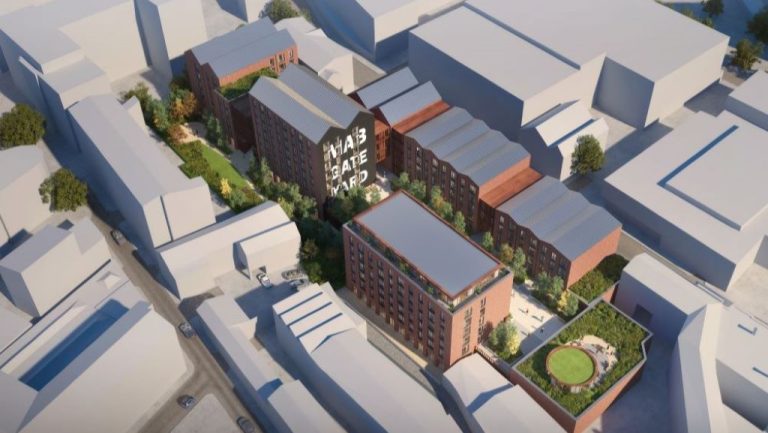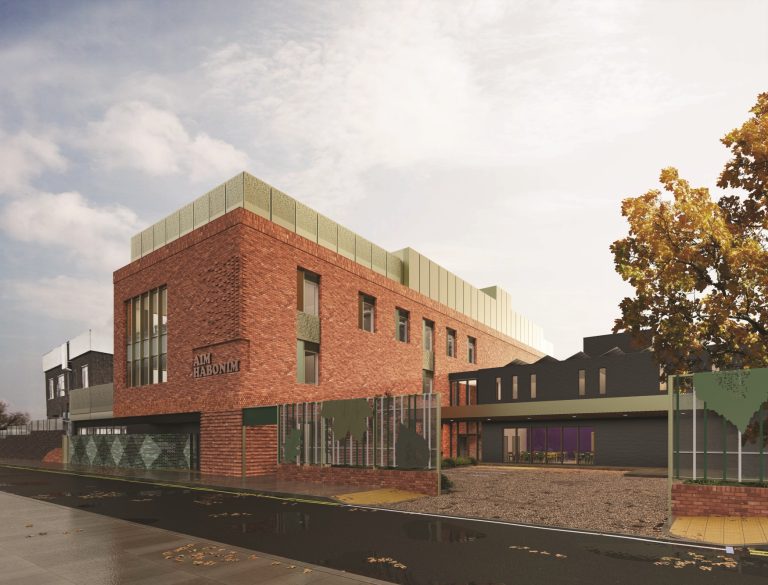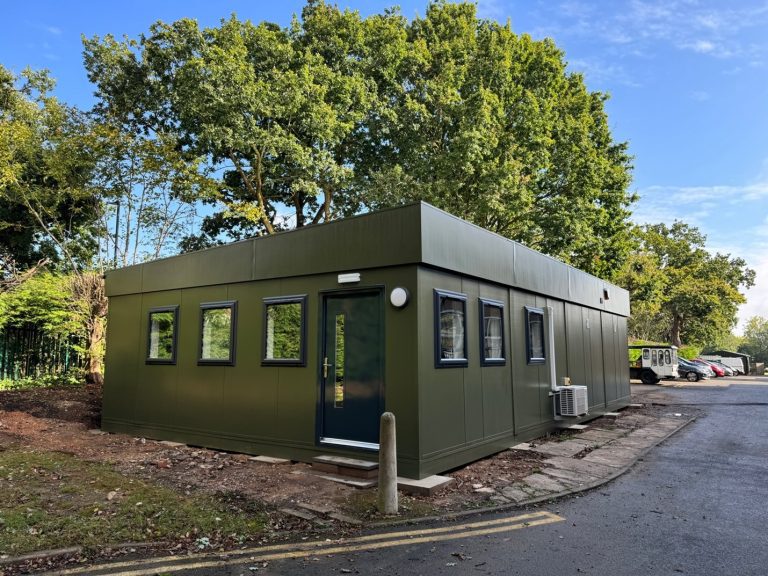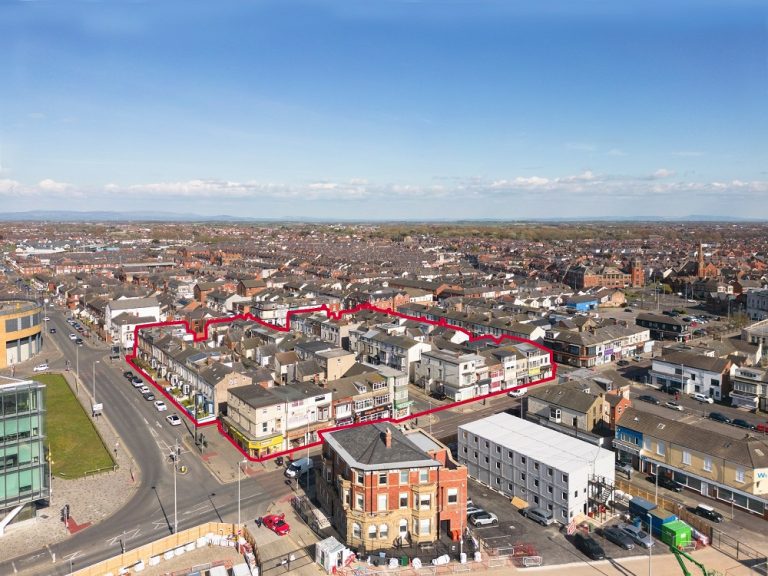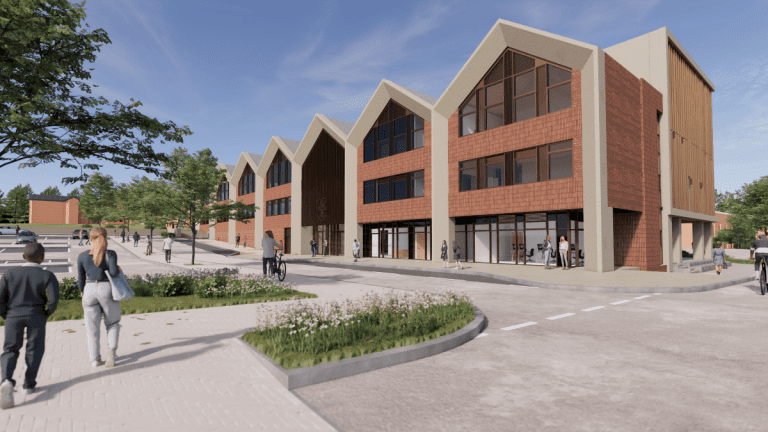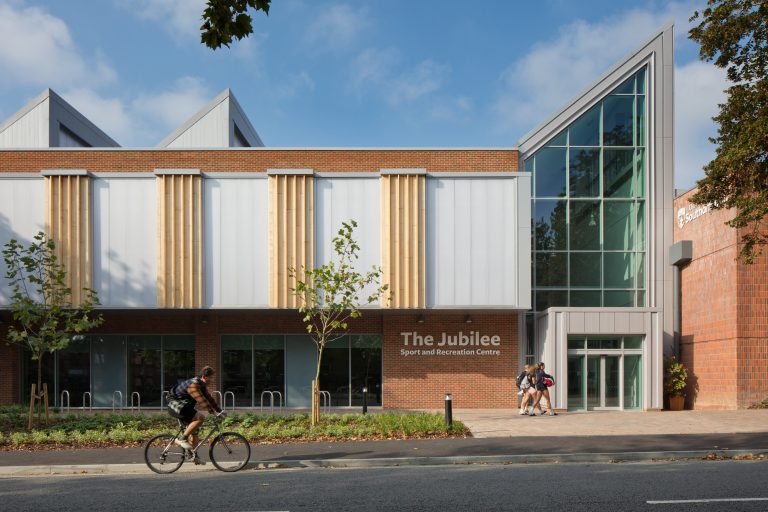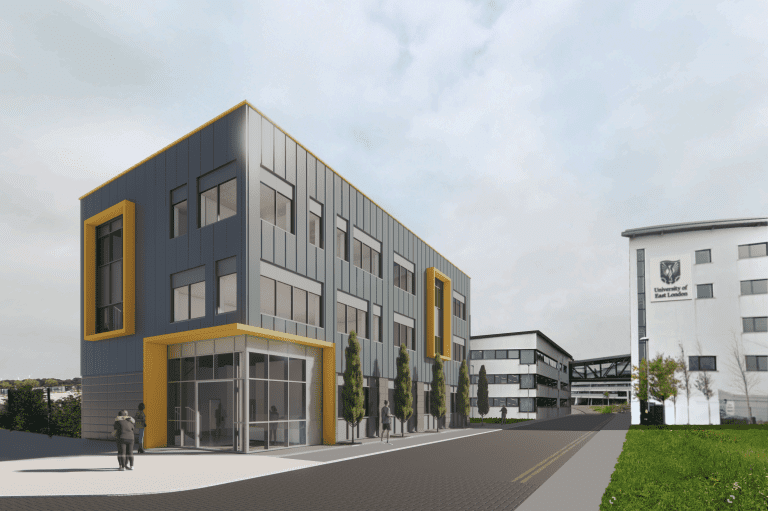THE recent expansion of the University of Southampton’s Jubilee Sports Centre, designed by AJ100 practice GT3 Architects, is bringing an elevated sport, leisure, and wellbeing experience to students and residents alike. The £24.7m expansion of the existing sports facility includes a fitness suite with more than 200 stations – making it one of Southampton’s largest gyms – alongside four fitness studios, an indoor cycling studio, and dedicated climbing and bouldering wall for all abilities. Together with three new squash courts, the new dry side offering seamlessly integrates with the existing wet leisure space, which includes a six-lane pool. Designed in the aftermath of the UK’s Covid-19 pandemic, the new Jubilee Centre represents an important shift in the way leisure facilities can support the wider ambitions of higher educational facilities. The expansion recognised the opportunity to integrate the requirements of the wider local community into a campus facility. The design team worked closely with stakeholders to ensure the final building met not only the diverse needs of the student population – including numerous sports and athletics teams, gym, and social users – but of the wider community too. This robust understanding of user-requirements not only influenced the final building design, but it also supported operator and client aims as they reviewed opening hours, multifunctioning spaces, and identified potential additional revenue streams. Kieran McFarlane, associate architectural technologist at GT3, said: “We designed this centre with people in mind and, while it’s a key part of the university campus, it’s there for the whole community. Every decision has been made with the goal of making sure that anyone – regardless of age, ability or background – can benefit from what the centre has to offer. “Everything reflects a strive to include and welcome a much wider range of users, seeking to support diversity within the average UK student population. Unisex changing areas, adaptive sports equipment, and the option of quiet and private space or louder public spaces have been integrated throughout the facility mix, ensuring visitors of all abilities and preferences can access, train, compete and enjoy everything the centre has to offer. “It was also a priority to ensure the building feels open, inviting and connected to the spaces around it, including Valley Gardens and University Road. The considered design all comes together to create a really vibrant and accessible space designed to enhance the health and wellbeing of all. The state-of-the-art fitness experience embodies this ethos and positions the Jubilee Sports Centre as the central hub for physical activity and community in the area.” A final priority for the university was for the facility to support wellbeing as much as physical fitness, providing safe, welcoming, social-orientated spaces for the student population. Clear sight lines into external green spaces are integrated along primary circulation routes, with visual and physical access to all facilities facilitated through large windows and glazed entry points into the building. The social café opens onto a wide veranda overlooking the adjacent yoga garden, and access to the nearby public park and fitness trails. Consistent communication with the client team through a multitude of channels ensured that every aspect of the scheme was carefully considered to align with project and team ambitions, culminating in a product of enhanced architectural, inclusive, and BREEAM credentials. This collaborative effort across the delivery team assisted in foreplaning for potential complexities in the enhancement works within a live student area, maintaining a fully operational pool facility throughout the construction phase. The tight site required a compact and well-thought-out solution to avoid splitting leisure services across the campus, reinforcing the ethos of accessibility, and providing cohesiveness across the leisure offering. Kieran added: “Getting the connection between the old and new building to be seamless was critical for the user experience, but we also needed to consider how the expanded Jubilee Sports Centre sits within the wider campus landscape. The way we approached the massing of the building works to reflect that of the campus itself, with a stepped down approach to lower-rise residential buildings at one end of the campus – avoiding the sports centre becoming overbearing in its setting.” Designed to meet BREEAM ‘Excellent’ standard, the building features passive design elements such as natural ventilation and light, with an improved airtightness of 3.5m³/h/m², lowering operational carbon outputs, and constructed with lower embodied carbon in mind, it also aligns the finished scheme with the RIBA 2030 Climate challenge. Mark Craig, Managing Director for Construction South at Wates, said: “We are incredibly proud of all our teams’ work delivering this exceptional facility. Collaborating with such innovators as GT3 has ensured the design was sustainable and considerate at all stages, helping us all support the University’s net zero ambitions. “Our purpose at Wates is to create thriving places for communities, providing opportunities for all to feel included and invested in. We believe this new sports centre is testament to this, helping to improve wellbeing in the local community while delivering a positive social impact throughout the course of its build through extensive Social Value initiatives.” Trudi Vout, director of residences, sport & community at the University of Southampton, said: “The new Jubilee Sport and Recreation Centre stands as an example of our commitment to enhancing the student experience and promoting a culture of inclusivity and wellness through sports and active participation. “The building design embodies the shared vision of sustainability, seamlessly integrating green spaces into the building through expansive windows that invite natural light and lawns that foster connection to nature. “The harmonious integration with our existing structure is a testament to the thoughtful planning and collaboration with our architects, GT3 Architects, whose vision, creativity and dedication have been instrumental in bringing this design to life.” The project team for the expansion of the Jubilee Sports Centre also included Wates Group, Ramboll A/S, Method Consulting, and Studio Loci. For further information, please visit www.gt3architects.com Building, Design & Construction Magazine | The Choice of Industry Professionals
